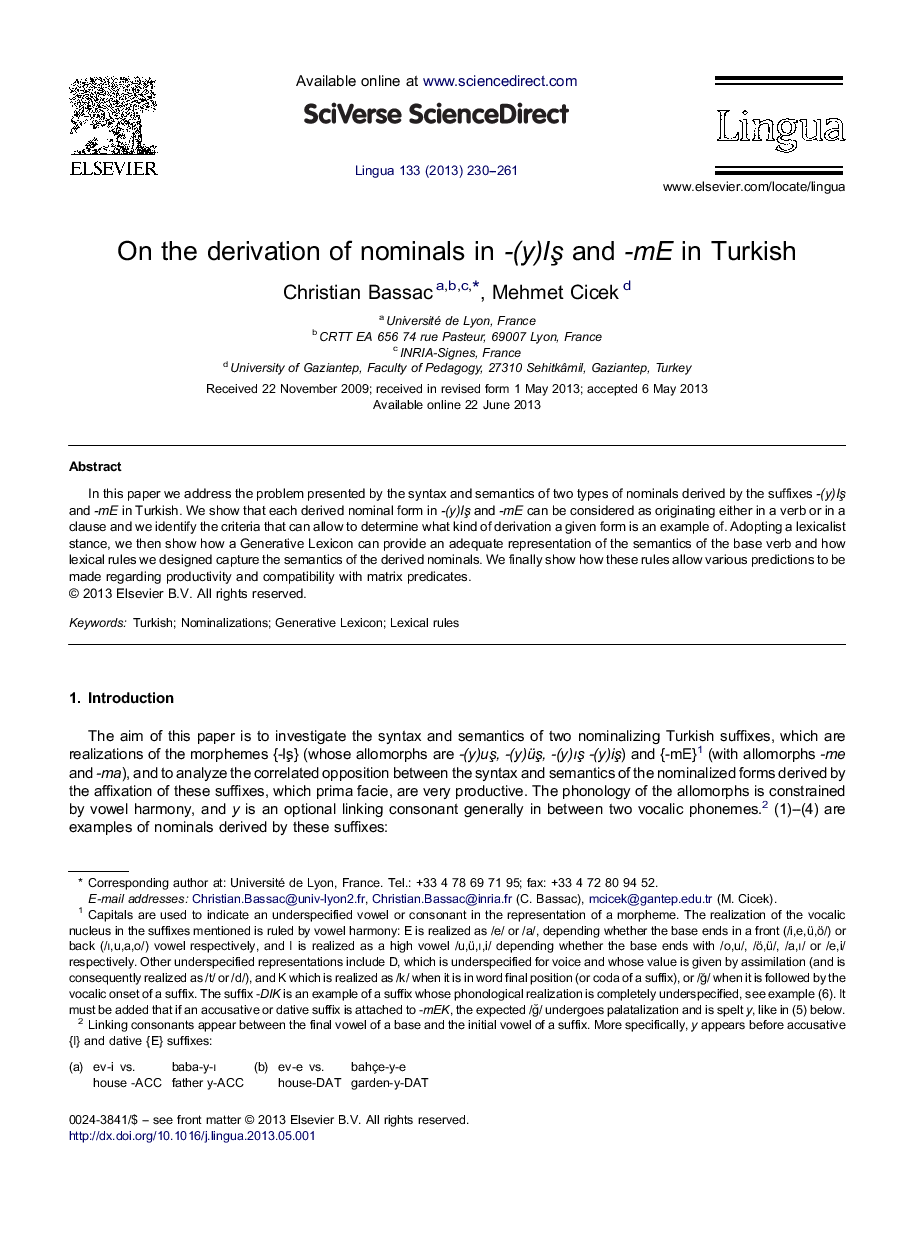| Article ID | Journal | Published Year | Pages | File Type |
|---|---|---|---|---|
| 935626 | Lingua | 2013 | 32 Pages |
We show that a lexicalist analysis of ⿿syntactically⿿ derived nominals is possible.We show that a Generative Lexicon provides an adequate semantics of the base verb.We show how lexical rules we designed capture the semantics of the derived nominals.We show how these rules allow predictions regarding productivity and distributional facts.
In this paper we address the problem presented by the syntax and semantics of two types of nominals derived by the suffixes -(y)Iſ and -mE in Turkish. We show that each derived nominal form in -(y)Iſ and -mE can be considered as originating either in a verb or in a clause and we identify the criteria that can allow to determine what kind of derivation a given form is an example of. Adopting a lexicalist stance, we then show how a Generative Lexicon can provide an adequate representation of the semantics of the base verb and how lexical rules we designed capture the semantics of the derived nominals. We finally show how these rules allow various predictions to be made regarding productivity and compatibility with matrix predicates.
